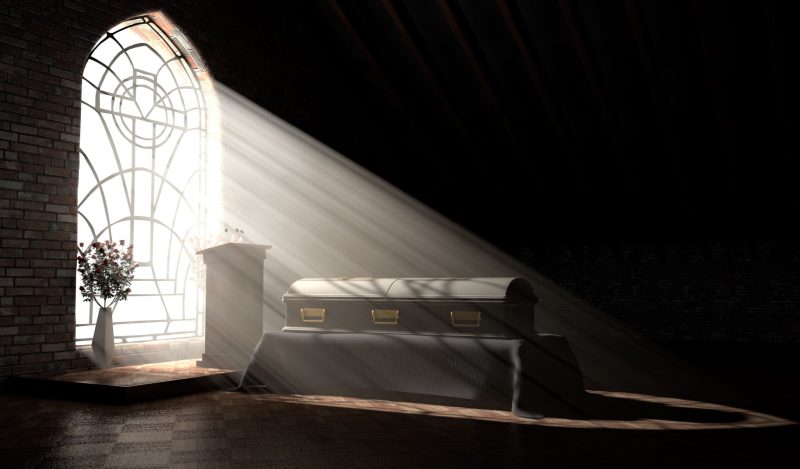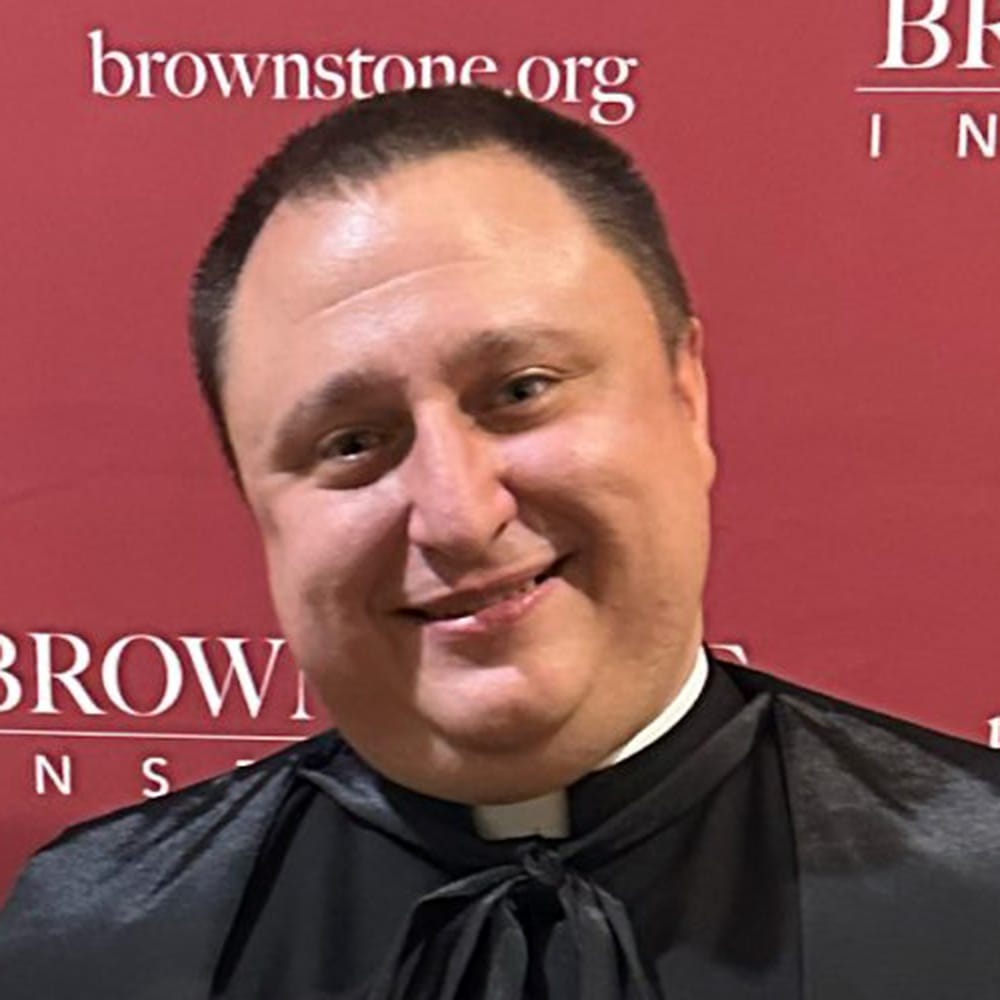Fifteen years ago, less than three months after my ordination as a priest, I found myself reciting the Liturgy of the Hours (the required daily prayers of the ordained) on a Friday morning next to an ICU bed at Mercy Hospital in Pittsburgh.
It was the day we were going to remove life support from my 63-year-old mother.
She had been admitted to the hospital days prior with a diagnosis of pneumonia and a bleeding stomach ulcer. On Tuesday, we received the news that the biopsy of her stomach indicated that the cause of the ulcer was cancer. The members of our family gathered that evening to console her for what was expected to be a long battle in the future.
None of that planning would matter. I was awoken Wednesday morning by a phone call telling me that she had suffered a massive stroke and that they were seeking permission to intervene. The intervention would not be successful.
After arriving at my mother’s hospital bed on Friday morning, I began praying the Office of Readings, which included a reading from a sermon by St. Augustine. These words placed what would become the day of my mother’s death in perfect context:
But what sort of shepherds are they who for fear of giving offense not only fail to prepare the sheep for the temptations that threaten, but even promise them worldly happiness? God himself made no such promise to this world. On the contrary, God foretold hardship upon hardship in this world until the end of time. And you want the Christian to be exempt from these troubles? Precisely because he is a Christian, he is destined to suffer more in this world.
For the Apostle says, All who desire to live a holy life in Christ will suffer persecution. But you, shepherd, seek what is yours and not what is Christ’s, you disregard what the Apostle says: All who want to live a holy life in Christ will suffer persecution. You say instead: “If you live a holy life in Christ, all good things will be yours in abundance. If you do not have children, you will embrace and nourish all men, and none of them shall die.” Is this the way you build up the believer? Take note of what you are doing and where you are placing him. You have built him on sand. The rains will come, the river will overflow and rush in, the winds will blow, and the elements will dash against that house of yours. It will fall, and its ruin will be great.
My mother’s life was not an easy one. After the death of her own mother, for whom she dropped out of high school to become a caretaker, she ended up in an abusive relationship with the man who would become my father. To protect me from him, she raised me by herself, working numerous unskilled cleaning jobs while making sure I was able to attend Catholic school. The final years of her life were spent on disability, as a mix of breast cancer treatment and recurrent pneumonia had left her reliant on oxygen.
Her proudest moment was the day of my ordination. With that done, her life was coming to an end.
Those words of St. Augustine that I read that day shaped my own understanding of the priesthood which had been bestowed upon me. My job was not to comfort people with the lie that everything was going to be okay. Instead, the job of the shepherd is to prepare souls to persevere and endure no matter the sufferings which may come. It was to provide solace and support to those who struggled like my mother, and to souls like me who would be called to pray next to a death bed.
This formative experience helped me to maintain clarity about many things during the Coronavirus hysteria which struck in 2020:
- Life is incredibly fragile. My Mom died at 63. She is buried in a cemetery plot with her mother, her uncle, and her grandfather. She was the oldest at the time of death of the four. A so-called plague with a reported median death age of approximately 80 is not an extraordinary tragedy. To quote the psalmist: “Seventy is the sum of our years, or eighty, if we are strong; Most of them are toil and sorrow; they pass quickly, and we are gone” (Psalm 90:10).
- Nothing related to pneumonia or even her stomach cancer appears on Mom’s death certificate. No doubt there would have been a lot of money to be made by everyone if the same fact pattern had occurred in 2020 by including pneumonia and blaming a certain virus.
- Even the most impressive medical practitioners are not miracle workers. Even aggressive treatment with no delay could not stop the death which had come for my mother. Instead, much like Mom would always say, “When my time has come, it comes.”
- Every moment spent with my Mom in those days was precious. We were blessed to be with her the final night that conversation was possible. After the stroke, I knew that she recognized my voice by the tear that formed in her one eye. Anybody who would have wished to deprive me of those moments would obviously have been to me an evil monster, and yet that is precisely what was done to so many grieving families in 2020 and beyond.
- “None of them shall die” is the promise that only selfish and evil liars make. Whether it is the clergy, politicians, or so-called experts, this is always true. Everything from “Two weeks to flatten the curve” to “If you’re vaccinated, you’re not going to be hospitalized, you’re not going to be in the IC unit, and you’re not going to die” was an intentional lie. People who spoke like that should never be trusted about anything. Instead, the real shepherds were those who prepared people for the cold hard fact that nearly everyone was going to be exposed to a virus that was never going away.
As I argued recently, the desire to be told that everything is going to be all right has led to a demand for leaders who are “exceptional liars who promise more hope, faster change, and utter greatness.”
Instead, what we really need is a demand for leaders who are prepared to deal honestly with the hardships which are necessarily a part of life. Months ago, I attempted to answer Jeffrey Tucker’s question of “What happened between then and now?”:
To answer Jeffrey’s question, we forgot that we are going to die. We forgot that suffering is our lot in this lacrimarum valle. We forgot that how we approach the fact of our suffering and death is what gives our life meaning and what enables the hero to be heroic. Instead, we allowed ourselves to be trained to fear all emotional and physical pain, to catastrophize with implausible worst-case scenarios, and to demand solutions from the very elites and institutions who worked to ensure our forgetfulness.
The day of my mother’s death ensured that I am incapable of forgetting any of this and has made me resolved to work tirelessly to see that others are incapable of forgetting it either. My prayer is that the hardships which we are now facing for having followed the lead of bad shepherds in 2020 will do the same for us as a people, lest we find ourselves to be built on sand when the next storm comes.
Join the conversation:


Published under a Creative Commons Attribution 4.0 International License
For reprints, please set the canonical link back to the original Brownstone Institute Article and Author.









